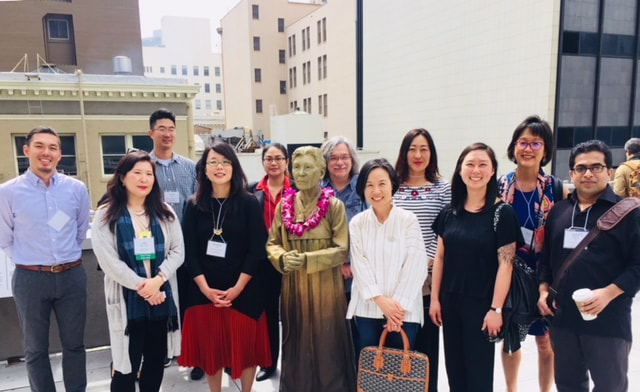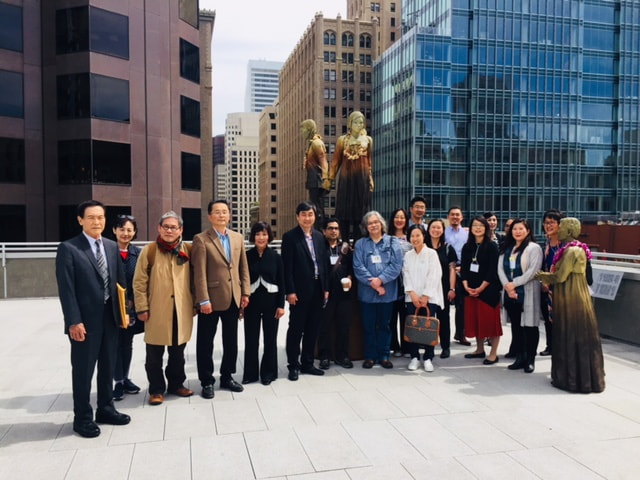|
The Association for Asian American Studies (AAAS) held its 2018 Conference in San Francisco from March 29th to 31st. The AAAS devoted several events at the conference to the teaching of “comfort women” history, following the passage of the resolution entitled “Supporting Remembrance of 'Comfort Women' and their Endangered History” which passed on February 7, 2017. Eclipse Rising was the main force behind the passing of the resolution.
The first event, on Thursday, March 29, was a tour and teach-in of the San Francisco “comfort women” memorial followed by presentations by Bay Area educators and activists on “comfort women” educational materials and teaching experiences. One of the main speakers at the memorial site was Ethnic Studies Professor Eric Mar, who proposed the San Francisco “comfort women” memorial installation resolution. This event was organized by Grace Yoo, Faculty Director and Professor in Asian American Studies at San Francisco State University, and Kei Fischer, Ethnic Studies Professor at Chabot College. The following educators and activists were invited to speak on educational materials on the “comfort women” history and other related issues. Kei Fischer shared about how she teaches the “comfort women” issues in the classrooms. Cecilia Gaerland, Founder and Executive Director of Bataan Legacy Historical Society, presented on her struggle for the inclusion of the WWII Pilipino history in the 2017 HSS Framework, especially the Bataan Death March. Sung Sohn, Co-Founder & Executive Director of Education for Social Justice Foundation (ESJF), introduced ESJF’s new publication, Teachers’ Resource Guide: “Comfort Women” History and Issues, and discussed some excerpts on “comfort women” from two textbooks. On Friday, March 30, Sung Sohn joined the panel discussion, “Teaching About ‘Comfort Women,” led by Professor Grace Yoo and Assistant Professor Eric Mar. She also joined the “Comfort Women” section meeting led by Miho Kim Lee from Eclipse Rising. Four activists from Osaka and about 700 scholars who attended the conference were reminded of the importance of teaching the sidelined history of military sexual slavery and strengthened their alliances with one another. These events also provided meaningful opportunities to support remembering the victims and survivors of the “comfort women” system and their voices.
0 Comments
Leave a Reply. |
CategoriesCategories |
Proudly powered by Weebly



 RSS Feed
RSS Feed